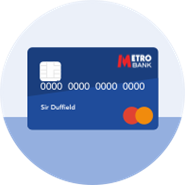Myth-busting receipt management
Five things you need to know about keeping your receipts
Not keeping track of your receipts can cost you a lot more than you’d think – and even make you a target for tax audits. As we come to the end of the tax year, it’s a good idea to make sure your receipts are organised and up to date for the new season now, so there’s less pressure when it’s tax return time.
If you're starting (or already running) your own business, keep reading as we myth-bust some common misconceptions about receipt management.
Myth 1: Your accountant deals with this for you, so you don’t need to worry about receipts.
Accountants and bookkeepers do amazing work to support small to medium businesses, but they still need receipts to get the whole picture. Plus, being organised could save you money in accounting fees, because if you hand your accountant a shoebox of messy receipts, they’ll likely bill you for the time they spend sorting through it.
Myth 2: Credit card statements are enough to support your tax claims.
Your credit card statements give some details, but they're not a replacement for receipts and they definitely won’t stand up in an audit. This is because they only show the total amount you spend, but not what you actually bought – and that’s the info you need to prove something is a business expense.
Myth 3: Only paper copies of your receipts can be used for returns and taxes.
This is one of the biggest receipt myths out there. In fact, digital copies are accepted by retailers and tax authorities, and can also save you valuable time doing admin. For more info, check out why HMRC encourages businesses to join Making Tax Digital.
Myth 4: Physical receipt storage methods are secure enough.
No matter how organised you are, paper receipts can easily get lost or misplaced. And because they’re printed on delicate thermal paper, you can’t protect them long-term. Faded receipts can cause a big problem if you need them for an audit.
But it’s still important to remember that nothing is 100% foolproof, even as things move more towards digital. Data privacy and security are more important than ever, so it’s best to avoid standalone apps when it comes to storing sensitive information. Check with your bank to see if they have any secure recommendations for receipt management.
Myth 5: You won’t get audited.
Depending on where you live and the kind of claims you make, you can be audited up to six or seven years following a tax claim, which means you need to hold onto your records for at least that long. It’s best to set yourself up for success just in case, so make sure your receipts are stored safely and organised for easy access.
Myth 6: It always takes ages to reconcile your receipts.
Not if you have our Metro Bank App! Our business banking customers can capture receipts with their phones and upload them on the spot, and they’ll automatically ‘smart match’ to the right transactions. You’ll find a digital copy of every uploaded receipt in the ‘my receipts’ section, so it won’t matter if you lose the original paper ones. It’s great for things you’ve paid for in cash, and keeping track of new transactions that aren’t showing up in your business bank account yet.
We hope this was helpful for navigating your day-to-day business management – if you have questions, your Local Business Manager can explain more.
